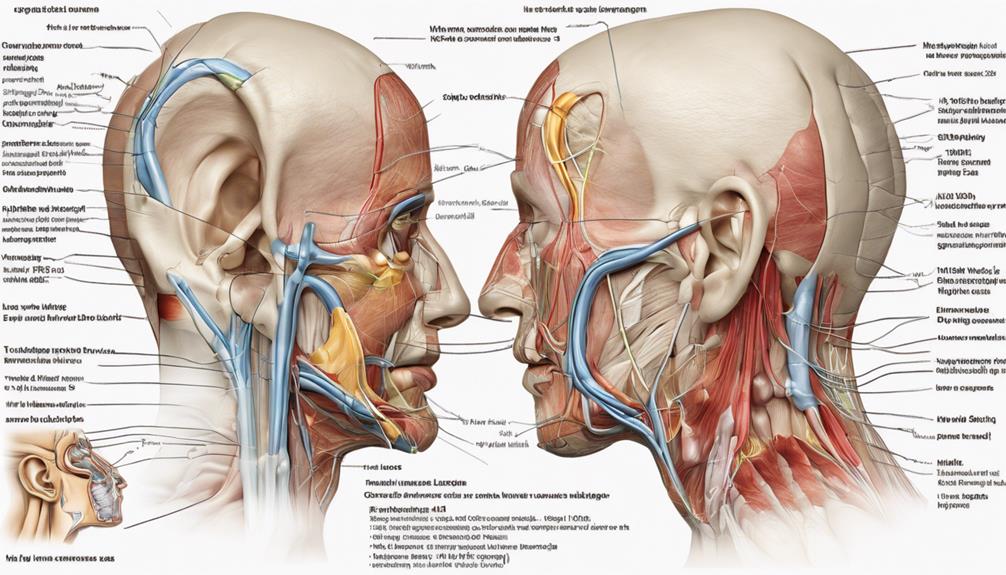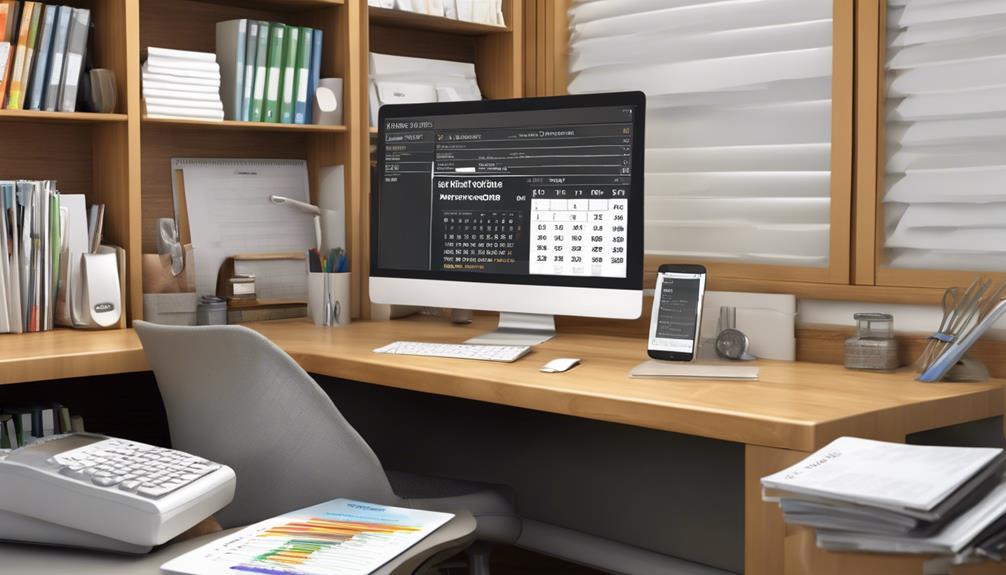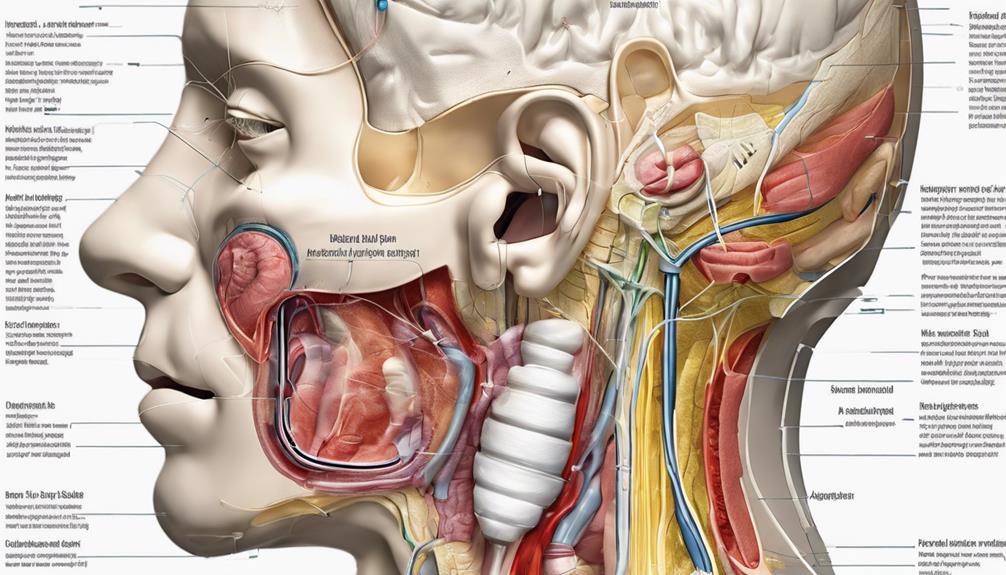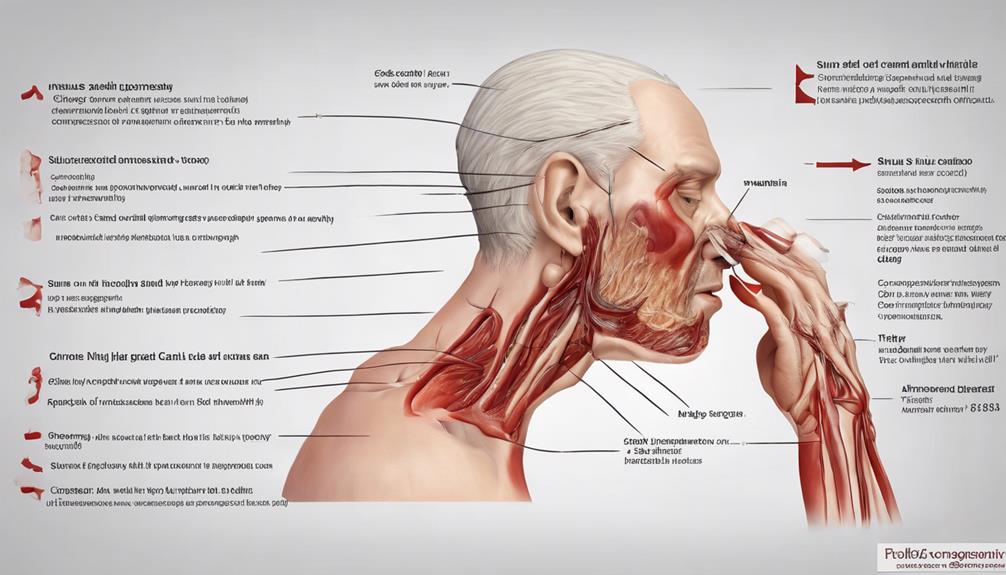Delving into the intricate layout of our sinus system, resembling a maze of interconnected pathways, we are prompted to question: Could problems with our sinuses really impact our hearing abilities?
The relationship between sinus issues and hearing loss is a complex one, with various factors at play. Understanding how sinus problems can potentially affect our auditory senses is crucial for anyone experiencing discomfort in both areas.
Let's unravel the mystery behind this connection and shed light on how these seemingly unrelated concerns may be more intertwined than we realize.
Key Takeaways
- Sinus issues affect Eustachian tubes and ear pressure.
- Sinus blockages disrupt sound transmission in the ear.
- Symptoms include ear pain, altered hearing, and pressure.
- Treatment involves antibiotics, decongestants, and tailored care.
nasal decongestant spray for sinus relief
As an affiliate, we earn on qualifying purchases.
As an affiliate, we earn on qualifying purchases.
Overview of Sinus Problems and Hearing Loss
Sinus problems and hearing loss are intricately connected, with the impact on the ear canal and Eustachian tubes being significant factors in understanding this relationship. When sinuses become inflamed and swollen, they can result in increased pressure within the nasal passages. This increased pressure can then affect the Eustachian tubes, which are responsible for equalizing pressure in the middle ear. Due to this connection, individuals may experience symptoms such as ear pain, altered hearing, and a feeling of pressure or fullness in the ears.
If left untreated, sinus issues can lead to complications in the ear, potentially causing hearing loss. Seeking guidance from an ENT specialist is crucial in managing sinus-related hearing problems. These specialists can offer a proper diagnosis and recommend appropriate treatments, which may involve the use of nasal sprays to reduce inflammation and swelling in the sinuses. Proper care, including maintaining an upright head position and following the advice of medical professionals, can significantly alleviate sinus-related hearing issues.

NeilMed Eustachi-Eustachian Tube Exercise-Pop Blocked Ears Safely. Helps Relieve Ear Pressure
ALL NATURAL DRUG FREE: Drug Free, Safe and All Natural solution for unclogging your ears!
As an affiliate, we earn on qualifying purchases.
As an affiliate, we earn on qualifying purchases.
Causes of Sinus-Related Hearing Issues
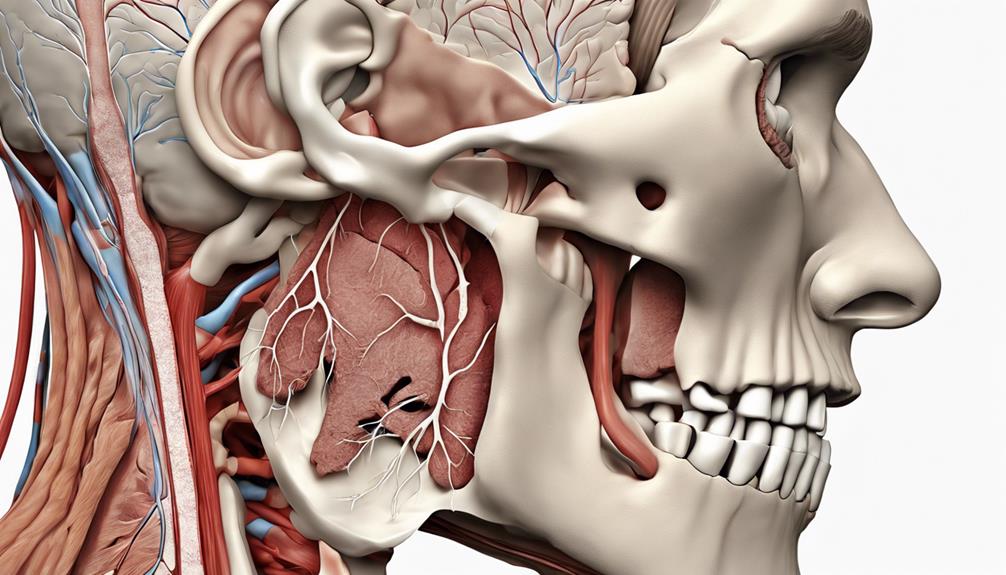
When blockages occur in the sinuses, they can directly impact the functionality of the ear canal and Eustachian tubes, leading to sinus-related hearing issues. Sinusitis, characterized by inflammation and swelling of the sinuses, can cause Eustachian tube blockage. This blockage disrupts the normal pressure balance in the middle ear, affecting the ability of the eardrum to vibrate efficiently in response to sound waves.
As a result, individuals may experience symptoms like ear pressure and muffled hearing. The connection between the sinuses and the ear is crucial for maintaining proper hearing function. Sinus blockages can impede sound transmission, leading to muffled or distorted sounds.
Understanding how sinusitis can impact the Eustachian tube and subsequently affect hearing is essential in managing sinus-related hearing issues effectively. Prompt attention to sinus problems that may cause Eustachian tube dysfunction can help prevent potential long-term hearing complications.
sinus pressure relief nasal spray
As an affiliate, we earn on qualifying purchases.
As an affiliate, we earn on qualifying purchases.
Symptoms of Hearing Loss Due to Sinus Problems
Experiencing symptoms of hearing loss related to sinus issues can include sensations of sounds seeming distant or underwater. Sinus problems, such as sinusitis, can lead to ear pain, pressure, and even infections, which in turn can affect the middle ear and cause hearing disturbances. The Eustachian tubes, responsible for equalizing pressure in the ears, can become blocked due to sinus congestion, disrupting sound transmission and resulting in partial hearing loss. Individuals with sinus-related hearing issues may also experience difficulty hearing clearly, along with a feeling of fullness or pressure in the ears. Prompt attention to sinus problems is crucial as untreated sinusitis can exacerbate these symptoms, leading to further hearing difficulties. Below is a table summarizing the key symptoms of hearing loss associated with sinus problems:
| Symptom | Description |
|---|---|
| Ear Pressure | Sensation of fullness or discomfort in the ears |
| Muffled Hearing | Sounds may seem distant or underwater |
| Ear Pain | Discomfort or pain in the ears |
| Hearing Loss | Partial or temporary loss of hearing |
| Blockage | Feeling of congestion or obstruction in the ears |

TANNRAN Ear Pressure Relief Suction Device,Migraine and Headache Relief Products,Airplane Ear Tinnitus Relief Through Inner Ear Pressure Balance,Reduces Tension,Equipped with 3 Sizes of Earplugs
【Natural and Safe】This ear pressure relief suction device uses gentle pneumatic stimulation to target key cranial nerves (5,7,9,10)…
As an affiliate, we earn on qualifying purchases.
As an affiliate, we earn on qualifying purchases.
Treatment Options for Sinus-Related Hearing Loss
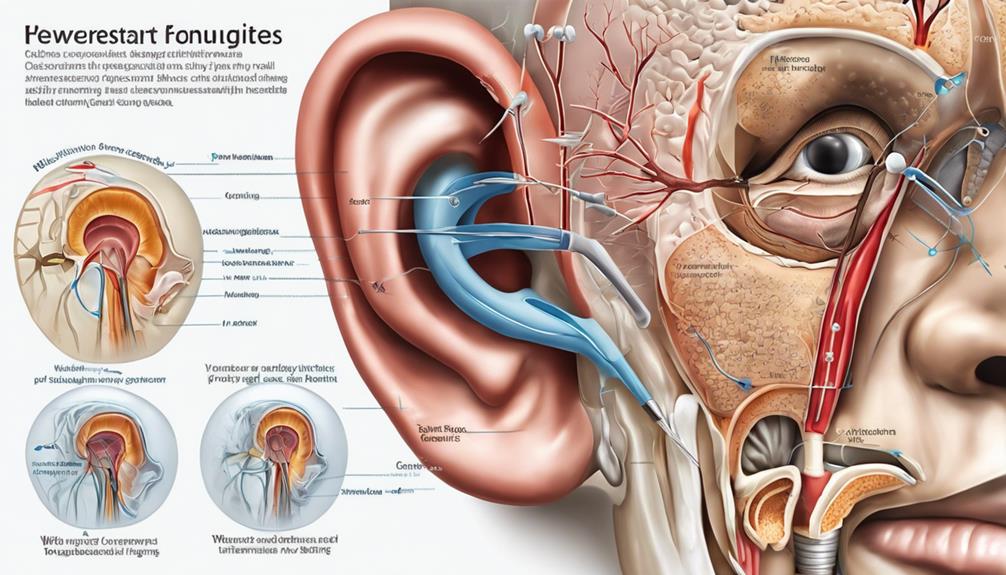
Addressing the underlying sinus infection with antibiotics is often a primary treatment option for managing sinus-related hearing loss. Antibiotics can help clear up the infection, reducing inflammation and swelling in the sinuses that may be impacting hearing.
In some cases, decongestants or nasal corticosteroid sprays may also be recommended to alleviate sinus pressure and further reduce inflammation. If the sinus problems persist and significantly affect hearing, more aggressive treatment options like sinus surgery or procedures to improve sinus drainage may be considered.
Seeking the expertise of an ENT specialist is crucial in determining the most appropriate treatment plan tailored to the individual's specific sinus issues and their impact on hearing. Timely and effective management of sinusitis is key in preventing or alleviating any associated hearing loss, highlighting the importance of seeking medical attention promptly to address sinus problems before they escalate and potentially cause hearing complications.
Preventing Hearing Loss Linked to Sinus Troubles
To prevent hearing loss associated with sinus troubles, proactive management of sinus issues is crucial in preserving optimal ear health and function. When considering the impact of sinus problems on hearing, it's essential to address these issues promptly to mitigate any potential long-term consequences.
Here are some key strategies to prevent hearing loss linked to sinus troubles:
- Consultation with an ENT Specialist: Seeking guidance from an Ear, Nose, and Throat specialist can help in diagnosing and treating sinus-related hearing issues effectively.
- Proper Treatment of Sinusitis: Treating sinusitis promptly can prevent complications such as otitis media, which can affect your hearing.
- Use of Home Remedies: Utilizing home remedies like humidifiers and nasal sprays can alleviate symptoms and reduce the risk of hearing impairment.
- Understanding Symptoms: Being aware of symptoms like ear pain, pressure in the ear, and partial hearing loss can aid in early intervention to preserve hearing health.
Frequently Asked Questions
How Do You Relieve Sinus Pressure in Your Ears?
We relieve sinus pressure in our ears by using warm compresses, nasal decongestants, saline nasal sprays, chewing gum, swallowing, and performing the Valsalva maneuver. These techniques help open the Eustachian tube and equalize pressure.
Steam inhalation and warm showers are also effective in loosening mucus and alleviating sinus pressure in the ears. By incorporating these methods, we can effectively manage and alleviate discomfort caused by sinus pressure in the ears.
What Does an ENT Do for Chronic Sinusitis?
When facing chronic sinusitis, ENT specialists have an arsenal of tools to tackle the issue. A thorough diagnosis through physical exams and imaging tests enables them to pinpoint the root cause.
From nasal endoscopy to identify blockages to tailored treatment plans involving nasal irrigation, steroids, antibiotics, or surgery, ENTs provide comprehensive care. Regular follow-ups ensure treatment efficacy.
How Long Does It Take to Fully Recover From Sinusitis?
Recovering from sinusitis depends on various factors, such as the type of sinusitis and individual health conditions. Acute sinusitis typically resolves within days to a couple of weeks with proper treatment, while chronic sinusitis may take weeks to months to fully recover.
Timely medical intervention, including antibiotics, can speed up the recovery process. Adhering to healthcare provider recommendations and managing symptoms effectively are vital for a quicker and complete recovery from sinusitis.
Can Sinus Issues Cause Hearing Loss?
Yes, sinus issues can cause hearing loss. When sinuses become congested, the Eustachian tubes can be affected, leading to muffled hearing and ear pressure.
Inflammation and swelling from sinus problems can disrupt the normal function of the ear, causing temporary hearing loss.
Seeking medical help promptly for sinusitis is crucial to prevent any further impact on hearing abilities.
Conclusion
In conclusion, sinus problems can indeed cause temporary hearing issues, like muffled hearing, due to blocked Eustachian tubes. However, with prompt treatment and proper care, these issues can be managed effectively.
Just like a well-tuned instrument can produce beautiful music, taking care of our sinus health can help ensure that our hearing remains crystal clear. Remember, listening to your body and seeking timely medical attention are key to preserving your hearing abilities.

